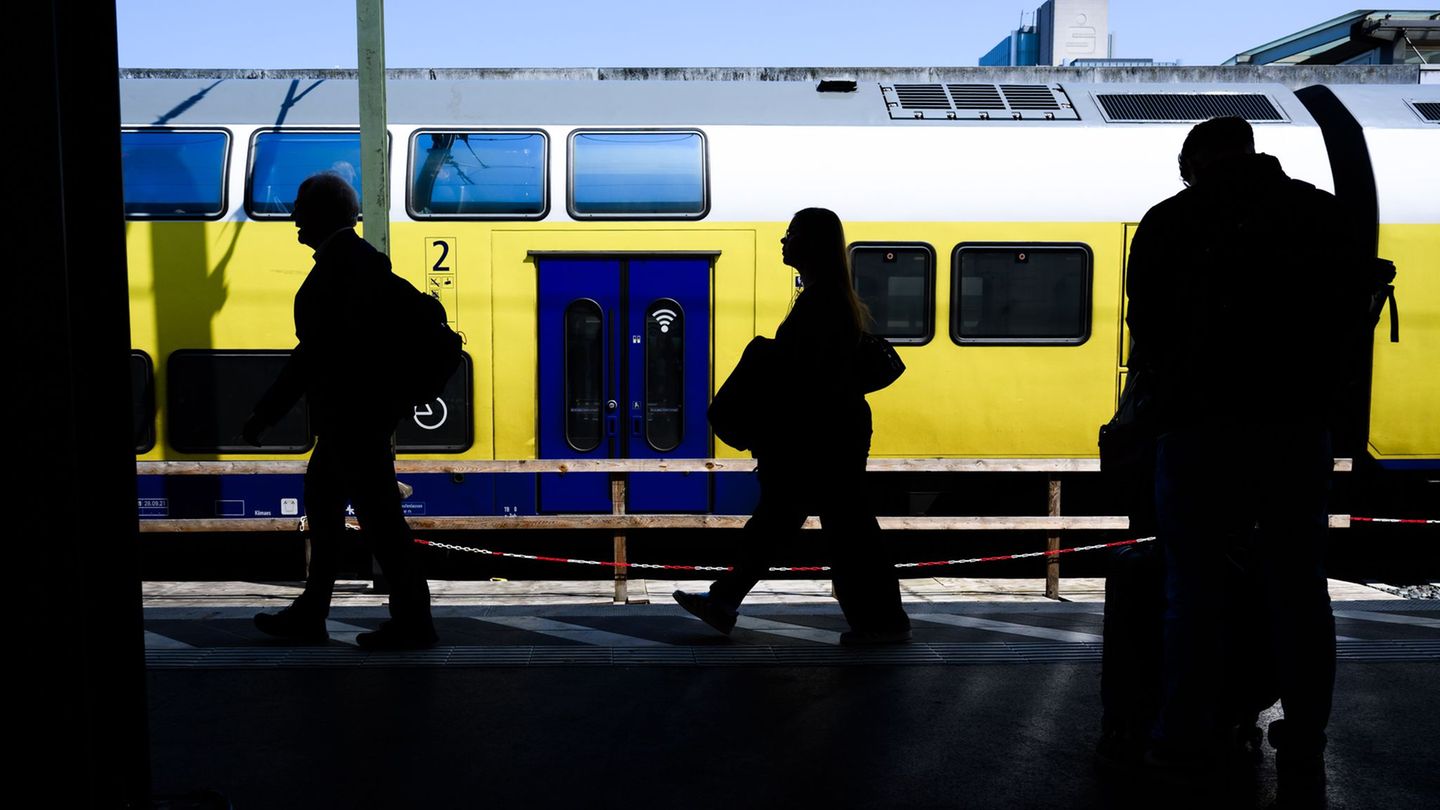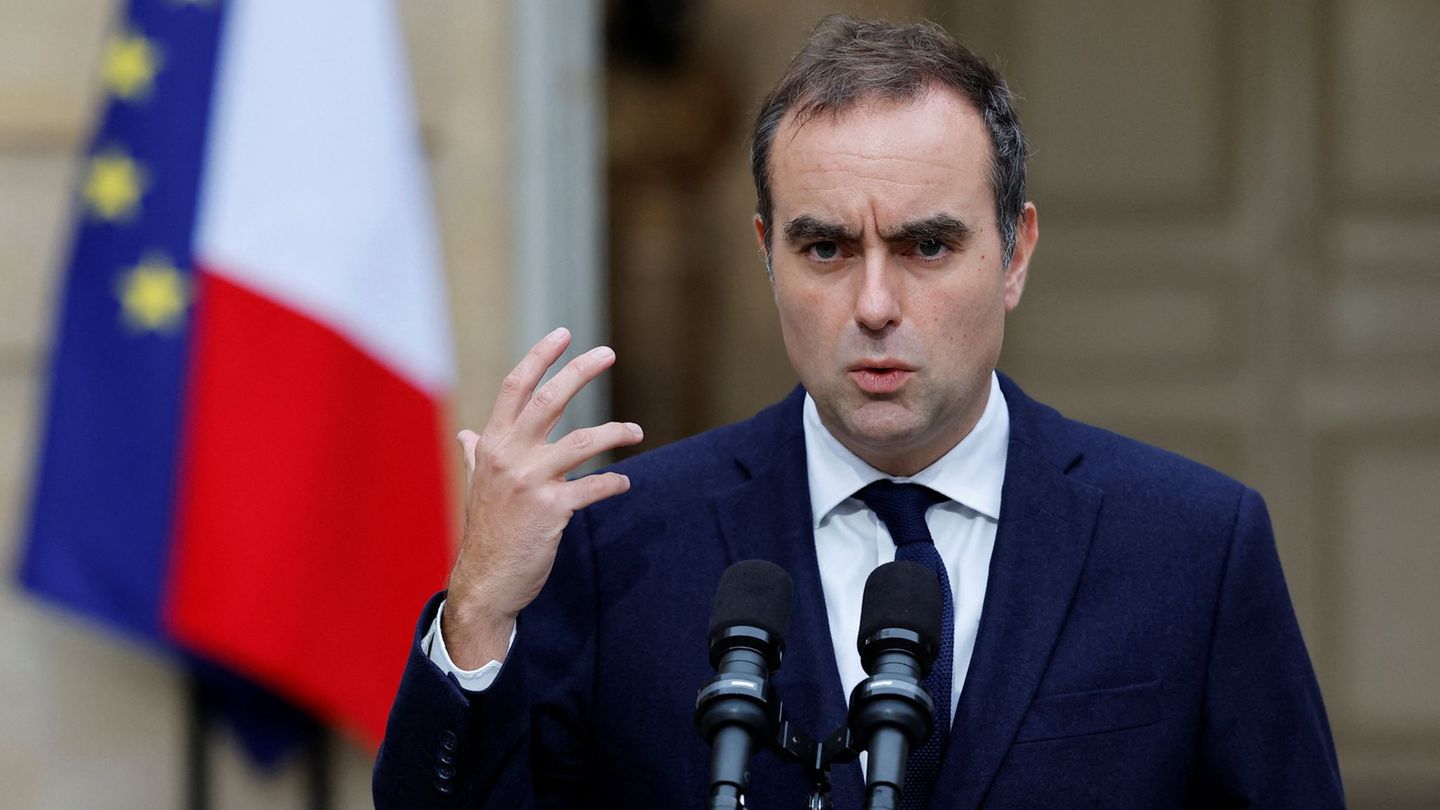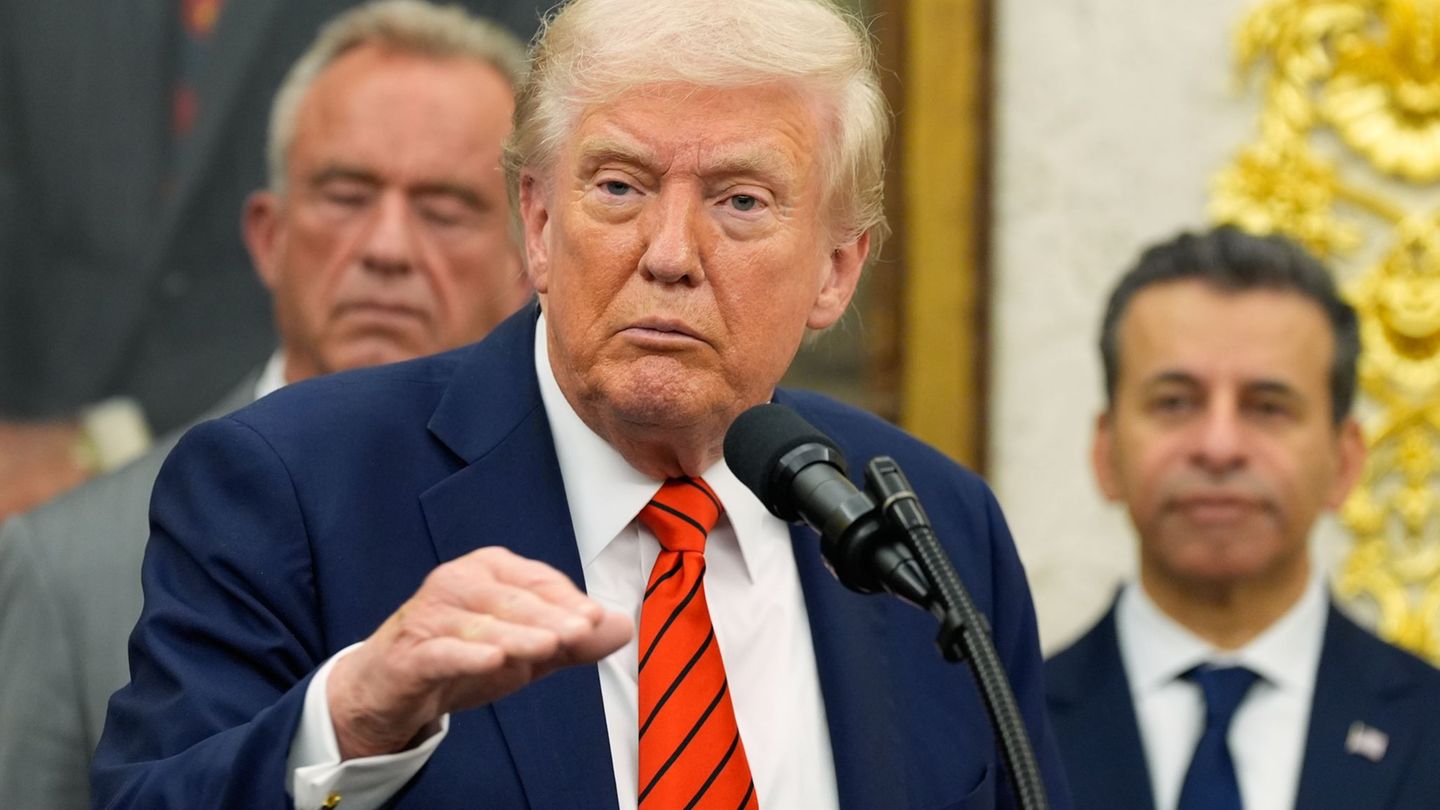Special conference
Transport Minister advised: How expensive does the Germany ticket become?
Copy the current link
Add to the memorial list
In Munich, the countries talk about a path to the future of the Germany ticket. It is already evident beforehand who will probably pay the additional costs of the transport companies in the end.
Next stage in the constant dispute of the federal and state governments for the Germany ticket: The Minister of Transport of the States will negotiate a new price increase for the nationwide local embroidery in Munich today at a special conference. According to reports, the ticket could cost users 62 to 64 euros per month in the coming year, as the German press agency learned in the run-up to the meeting. At the beginning of the year, the price rose from 49 euros to 58.
The Transport Ministers’ Conference (VMK) of the federal states set the price for the ticket. The federal government is a guest. The increase is then formally decided again in the Federal Council. Federal Transport Minister Patrick Schnieder (CDU) is not involved in the talks in Munich, he is represented by a state secretary.
No agreement on a specific price for Germany ticket yet
The country representatives had already negotiated a compromise behind the scenes in the past few days – but they could not initially agree on a specific price. In a draft resolution of the dpa, no number is given when it comes to a price increase in 2026.
The Saarland Transport Minister Petra Berg, on the other hand, has a precise price presentation. “I think that with a maximum of 62 euros from next year, good financing would be secured for the Germany ticket,” said the SPD politician of the “Rheinische Post”.
In addition, according to the template, the federal states could agree to provide 1.5 billion euros annually for the Germany ticket from 2026 to 2030 – if the federal government also guarantees federal funds of at least 1.5 billion euros per year from 2026 to 2030. So far, the federal government has only promised this for 2026.
Lower Saxony disappointed about the dispute between the federal and state governments
“Lower Saxony is committed to ensuring that the Germany ticket remains affordable. The success of the D-Ticket is and falls with the price. We would therefore be quite willing as a country to compensate for the overall additional costs with state money,” said the Lower Saxony Minister of Transport Granz Hendrik Tonne (SPD) of the dpa in Hanover. But that only works if the other countries and the federal government would go along. “Unfortunately, this has not yet become apparent that we come together.”
Tonne was disappointed with the “Black Peter game between the federal and state governments”. Nobody understands that billions of billions in modern infrastructure, new roads and rails should flow, “and at the same time there is no money for favorable mobility”.
The sticking point is once again the additional costs
In fact, the crux of the matter is once again the question of how expected additional costs should be compensated for in transport companies – beyond the three billion euros per year that the federal and state governments have to provide together and also want to provide together for the coming year. The Germany ticket is cheaper compared to previous subscriptions, which ensures that the income is taken. According to the Association of German Transport Companies, a financing gap between forecasted 800 million euros threatens in 2026.
Spectacular rail trails – on dream routes with the Germany ticket
Course book route 130: Hindenburgdamm
Regional trains start almost every hour from Hamburg-Altona. Further trains run from Husum, Heide or Niebüll, among others. You can find the timetable for the Hindenburgdamm
© Alimdi / Imago Images
More
Open the image subtitle
Back
Further
The Germany ticket has been around since May 2023. According to the industry, it is used by around 14 million people and enables trips in public regional and local transport nationwide.
On the part of the federal states, there had been massive criticism of the federal government in the run -up to the conference in Munich. Schnieder had said several times that the federal government made no further funds available beyond the 2.5 billion euros. “It is the opposite of responsible politics to only promise price stability and then, when it becomes concrete, to get out of dust,” said North Rhine-Westphalian Transport Minister Oliver Krischer. In its coalition agreement, the Federal Government anchored price stability by 2029. In particular, the SPD had campaigned for this.
Dpa
EPP
Source: Stern
I have been working in the news industry for over 6 years, first as a reporter and now as an editor. I have covered politics extensively, and my work has appeared in major newspapers and online news outlets around the world. In addition to my writing, I also contribute regularly to 24 Hours World.




